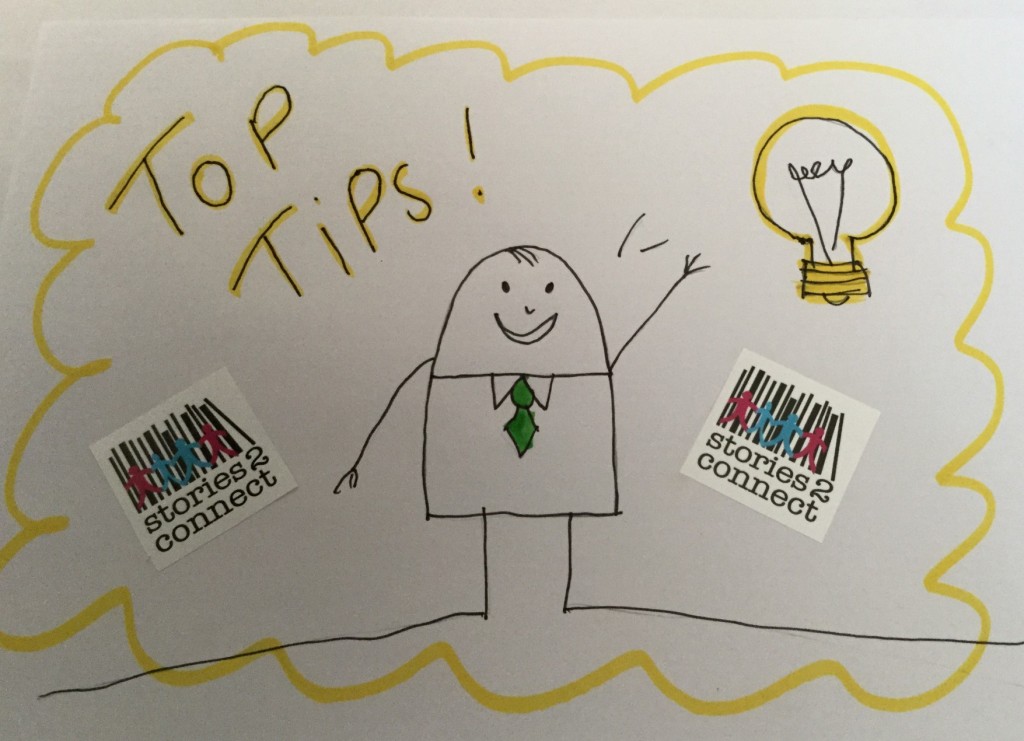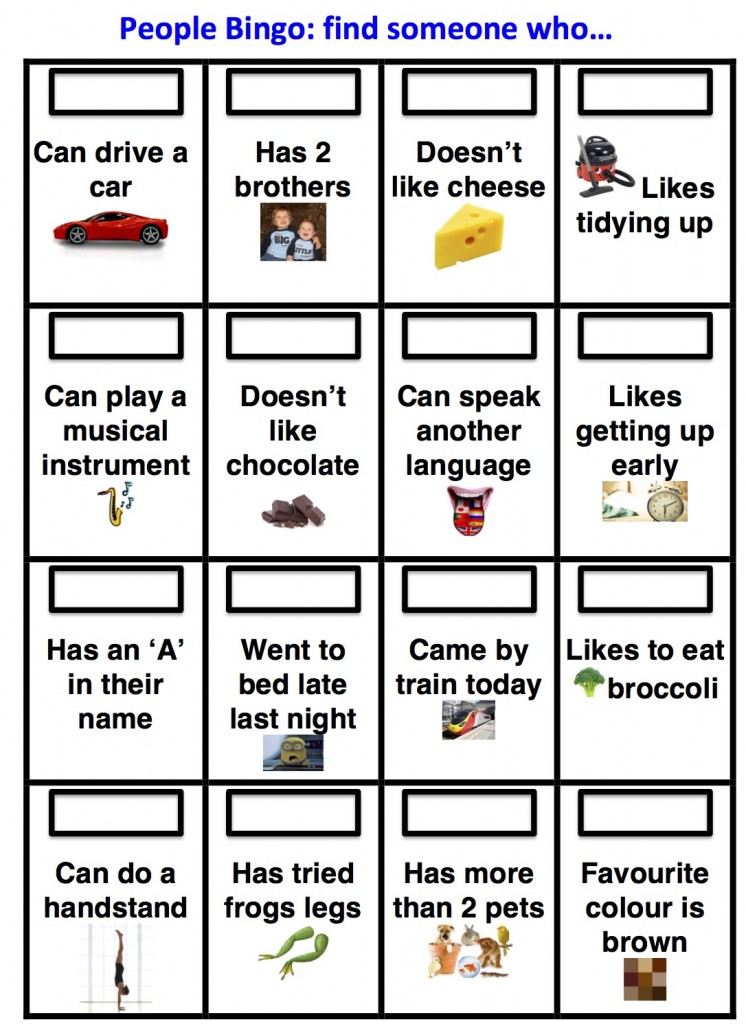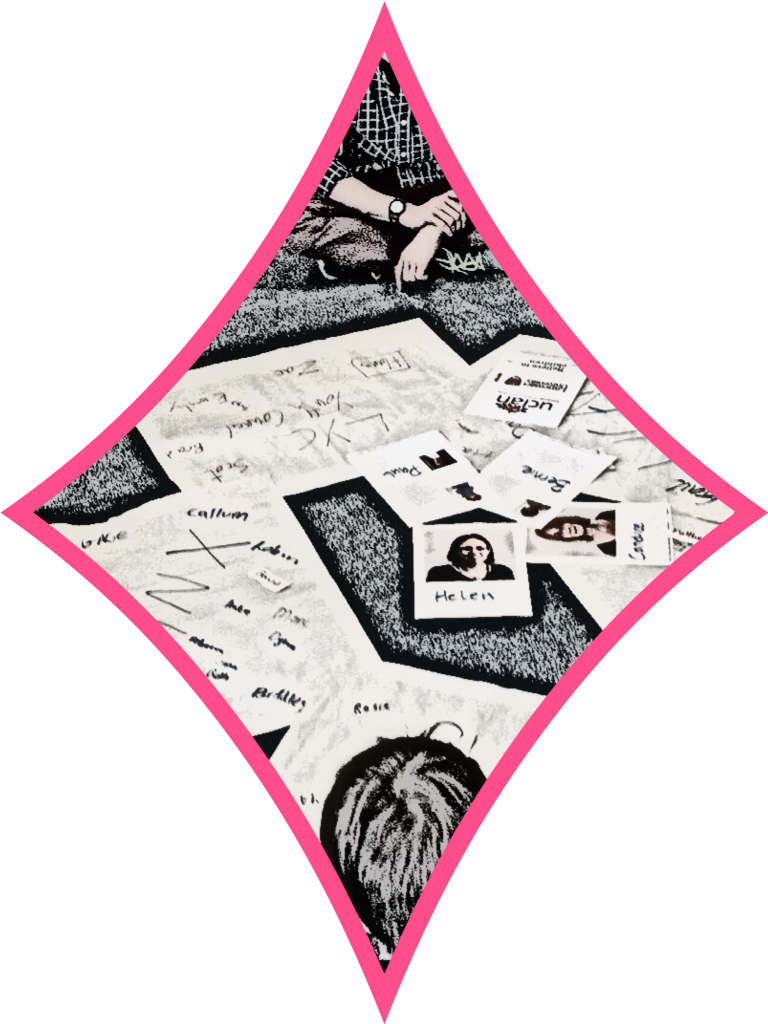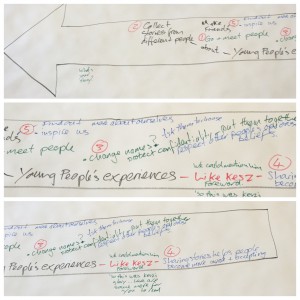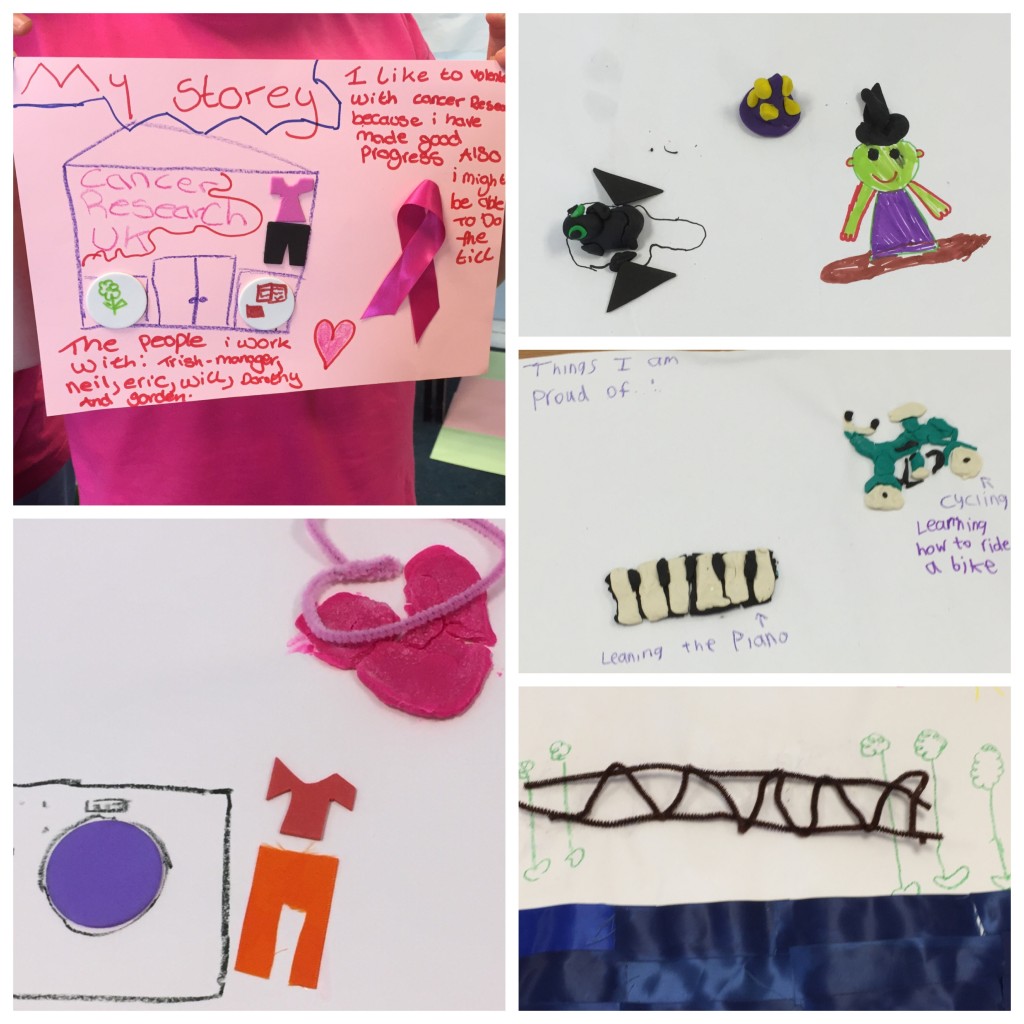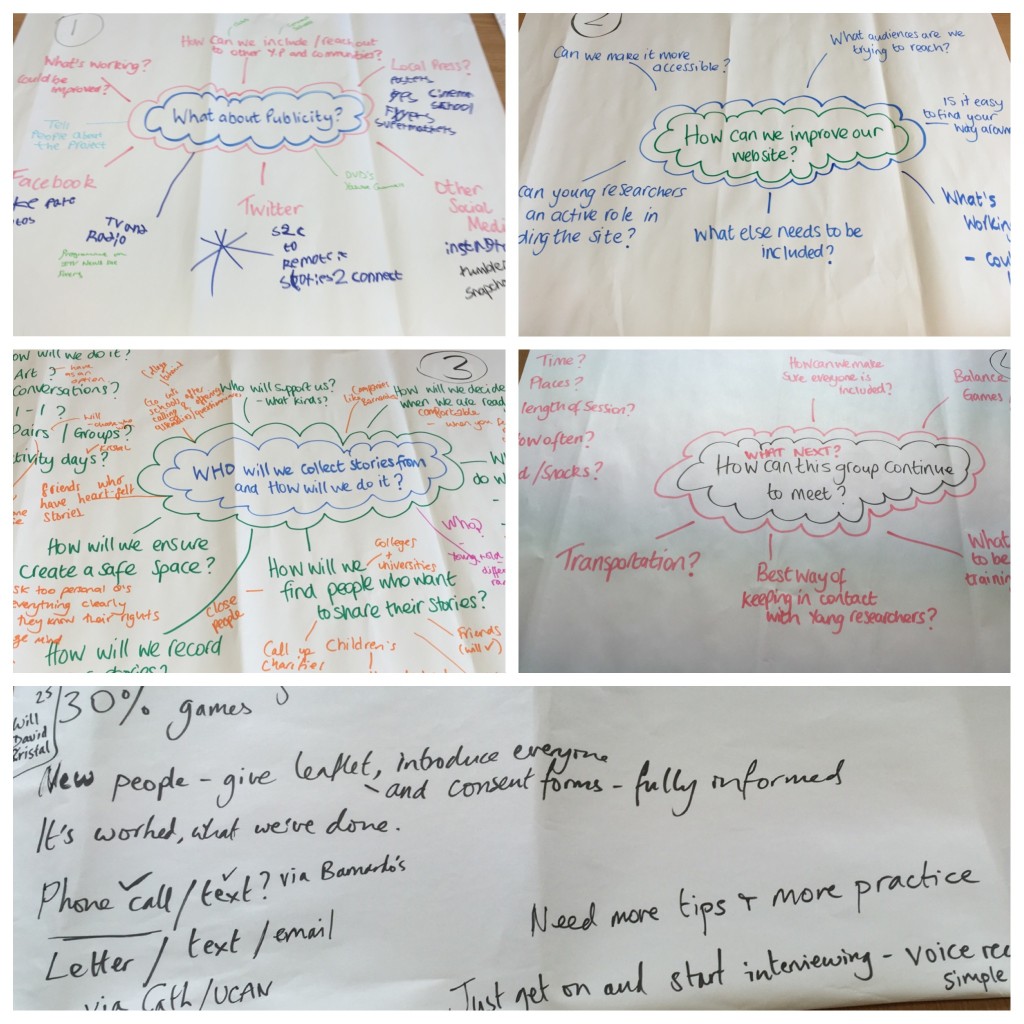It’s been an eventful couple of weeks on the Stories2connect project! We have been very busy preparing for our young researcher training sessions, which took place during the first two weeks of August. During the last three months we have been talking to lots of different people, trying to find out how different individuals and participatory groups might like to be involved with the project as it evolves. As a result, some young people who visited our festival launch, young people who access Barnardo’s services and existing UCan members all expressed an interest in taking part in the project as peer researchers.
From the very beginning, the ideas and inspiration for this project came from conversations with an existing UCan young researchers group at UCLan University who expressed a wish to create further opportunities for participatory research. As the idea turned to action, a number of UCan members became key players in helping to draft the initial project proposal, interviewing potential researchers and advising us on social media and website design.
Following our successful project launch in June, we were then in a position to seriously consider how we might engage with other interested young people and support them to become young researchers with the necessary resources and skills to collect stories from their peers. The last two weeks have marked the start of this important process.
We began our first training workshop on Wednesday the 5th August having lots of fun getting to know each other with a group juggle and a game of human bingo. We soon discovered that our team members had some amazing skills not to mention surprising likes and dislikes!
We spent the rest of our morning making important decisions and planning for the months ahead. One of our first tasks involved discovering how we were all connected and finding out about other key members of the team who weren’t able to attend…
During our first morning together, key phases of the project were identified and written into our rapidly expanding timeline. Once we had gained a clearer sense of ‘what needed to be done?’, ‘and when?’, young researchers decided which tasks they would like to become more involved with.
KEY PROJECT PHASES
- Collecting stories
- Tell your story
- Listen to other people’s stories
- Help children’s authors create new stories
- Help make phygitals
- Help find places we can put the phygitals in the community
- Help with the website
During our first few days, we discussed both what might be possible to achieve as a group and also what types of skills individuals might want to develop over the next few years. One of our most important conversations centred upon the types of experiences we might have and the goals we could achieve as a result of working together on the project. After discussing these, we created a large arrow and placed our collective aims on it.
OUR PROJECT AIMS
1. Go and meet people.
2. Collect stories from different people. Find out about other young people’s experiences.
3. Change names and protect confidentiality. Ask them to choose, respect other people’s opinions & beliefs.
4. Share stories to help people become more aware and accepting.
5. Make friends. Find out more about ourselves and things that inspire us.
After gaining a sense of how the project might evolve over the remaining two years, we were able to think about what types of training, resources and support we would also need to be in place in order to achieve our aims. We had lots interesting discussions about different methods we could use to collect stories and how we could develop and practise a range of research skills. Some of the young researchers thought that using art-based activities might help and others preferred to use more traditional interviewing approaches. As a group, we thought it would be useful to try out a range of techniques and evaluate what worked well so that we could develop some ‘top tips’ and prompts in order to support each other later on in the process. Here are some art-based enquiry examples that were created by some talented members of our team!
During one of our afternoon decision making activities we also reminded ourselves of the need to include everyone and began to draft a really important document, our Stories2connect group contract.
Our S2CW Group Contract
Treat others how you would want to be treated
We will include everybody
We will listen to each other
Try to balance work and games
Be friendly towards everyone in the group
Remember that we are all different but here for the same reason
We can talk about how we can support each other
Talk to someone at Barnardo’s if there’s a problem
Throughout the workshops we developed a list of questions that we hoped we would be able to find the answers to and made a list of things we still needed to find out about later. Our enquiries covered issues such as:
- How long will the project take?
- What is a phygital?
- What is the connection between S2C and UCan?
- Can anyone join?
- What is confidential?
- Can people’s real names be used?
- Who are we going to interview?
- Should we interview people we know? That we are friends with?
At the end of the first two days we discussed what we thought that we had learnt and what we had enjoyed the most. We rounded the first week off by thinking about what we would like to do next time. In between the first and second week, other project team members adjusted workshop plans to try and ensure that we built upon what we had learnt and what had worked well, included more of the things that young researchers enjoyed and added a selection of new games.
The second week began with ice breaker games and updating new members of the team with what we had been doing last week. The final two days focussed upon extending our research and interviewing skills. We spent time discussing what we felt had worked well and not so well from the perspectives of both interviewer and interviewee. As we moved on to watching video clips and listening to our responses from the previous week, we highlighted significant moments of each other’s interviews and made suggestions about how we could improve our communication skills and recording methods. We later used the reflections from this exercise in a lively forum theatre session as members acted out a variety of roles and scenarios. We also discussed which reflections and top tips needed to be included in our eventual guide to interviewing. We rounded off the second week’s sessions by meeting some more members of the project team for lunch in the Harrington Building dining area. The final afternoon began with a quick game of ‘zombies’ so that new members had the chance to learn some of our names. We closed the session with a final consideration of our journey so far, generating ideas for our next steps by rotating around two rooms ‘café style’!
After four days of playing games, decision making, planning, and practising a range of interviewing techniques and scenarios, we had accumulated lots of material and top tips to include in our interview guide. Watch out for our next post which will include what we learnt from our training experiences and how we have created our own guide to interviewing. We hope to develop this even further over the coming months as we continue with our training sessions on Thursday nights. (Dates to be announced very soon!) If you are interested in joining us or becoming involved in any other aspect of our project please get in touch via the website or our social media pages!
Coming Soon…